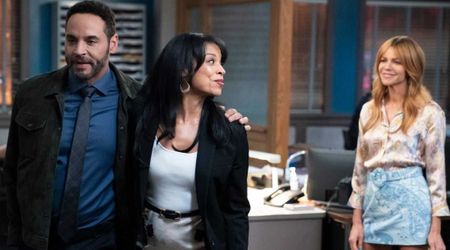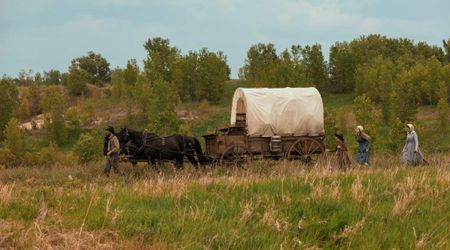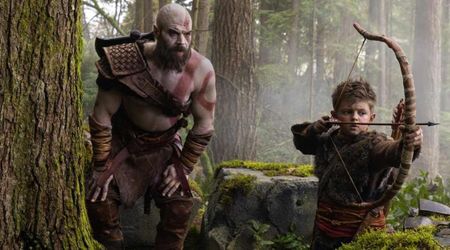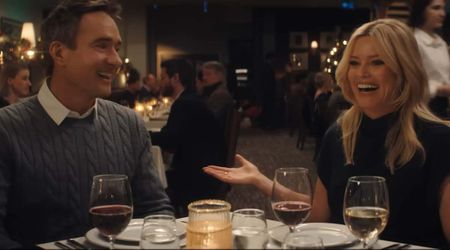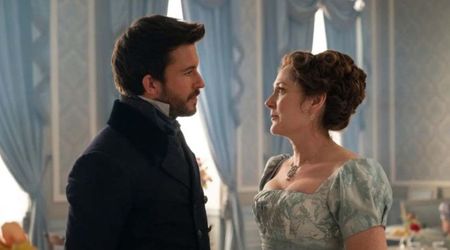'The Baby-Sitters Club' explores racism, divorce and cruel history through the eyes of the modern generation

Spoilers for 'The Baby-Sitters Club' Season 1
Before the release of the highly anticipated third adaption of the novel series 'The Baby-Sitters Club', viewers knew that modernity wouldn't be subtle. Without changing the narrative alluring vibe that influenced many young minds in the '90s, the series focused on many themes that although were always important, resonate with so many young minds growing up in this current world.
While it would be crazy to say that this release was rightly timed, it seems as though most of the morals and lessons speak very blatantly what children need to learn in this day and age. It speaks of divorce and acceptance, it applauds diversity, it brings up history and its mistakes and celebrates the need for everyone to have the right to their preferred identity. While these heavy topics don't seem appropriate in a series that focuses on five middle schoolers, you'd be surprised how innocence and learning phases bring about a subtly in learning right from wrong.
As Kristy Thomas (Sophie Grace) deals with Watson Brewer (Mark Feuerstein), her mother's boyfriend becoming part of their family, she says quite a saddening statement, "It's not that I don't want my mom to be happy, it's that I want us to be enough." For a kid in seventh grade, that's a lonely feeling, not to mention Kristy explaining how her father had walked out on their family after her youngest brother was born.
Kristy also narrates the loss of Mary-Anne Spier's (Malia Baker) mother when Mary-Anne was just 18 months old, leaving her with an overprotective father that innocently still dresses his daughter in overalls and pigtails. The theme of loss and abandonment is quickly introduced, along with feminism, but never once making their lack of one parent a huge focus. Rather, scenes with Mary-Anne and her father, and Kristy and her mother were some of the best in the series — it reminded kids of a bond that only parents have with their kids, even though unthinkable trauma.
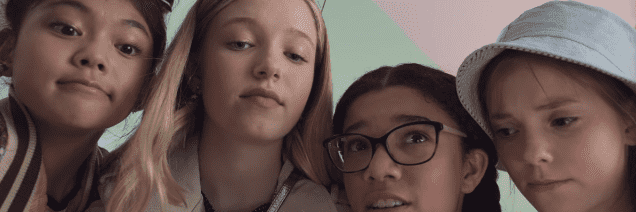
Most fans of the series would notice that the idea of "pushing to be who you want to be" is a theme well explored with all characters in these series — especially when it comes to Claudia Kishi (Momona Tamada). Claudia as a character influenced many young American Asians in the '90s giving them aspirations that they were confident in achieving. In the series, she not only represented diversity but also shatters too many stigmas of Asians being excelling at school.
Many children around the world feel the need to be what their parents expect them to me, and don't focus on the other things they do well. By her own admission, Claudia is good at fashion, very good at babysitting, and great at art. With an eccentric fashion choice that calls for subtle attention, she represented the importance of being confident in being different. Interestingly enough, Claudia is also good at cooking, something she learned from her grandmother Mimi (Takayo Fischer).
Ringing in the themes of history and its past mistakes, we see young Claudia learn of how her grandmother bore the trauma of internment camps, bringing in the sense of belonging, and how the current generation is to be able to live freely and move forward. From Claudia's outfits and Dawn Schafer's (Xochitl Gomez) new moon "sharemonies" to the importance of identities and respect, the well rounded strategic themes embodied this cult classics need to spread the idea of accepting all for who they are.
The series also spoke of identity and the LGBTQIA+ community, by bringing in Bailey, a transgender young girl that Mary-Anne babysits and also the children's art teacher who is part of a lesbian couple. A take at acceptance, hitting all angles. It was the fantasy of it all that made the series likely to instill hope like old shows such as 'The Full House' — the parents are loving and understanding, all fights are healed with acceptance and apologies and each hardship is a lesson to be taught. The themes may have centered around a narrative meant to bring children joy, but people tend to forget that young minds are vulnerable to morals, and so the virtues should be planted young.
All episodes of 'The Baby-Sitters Club' Season 1 are now available to stream on Netflix.


